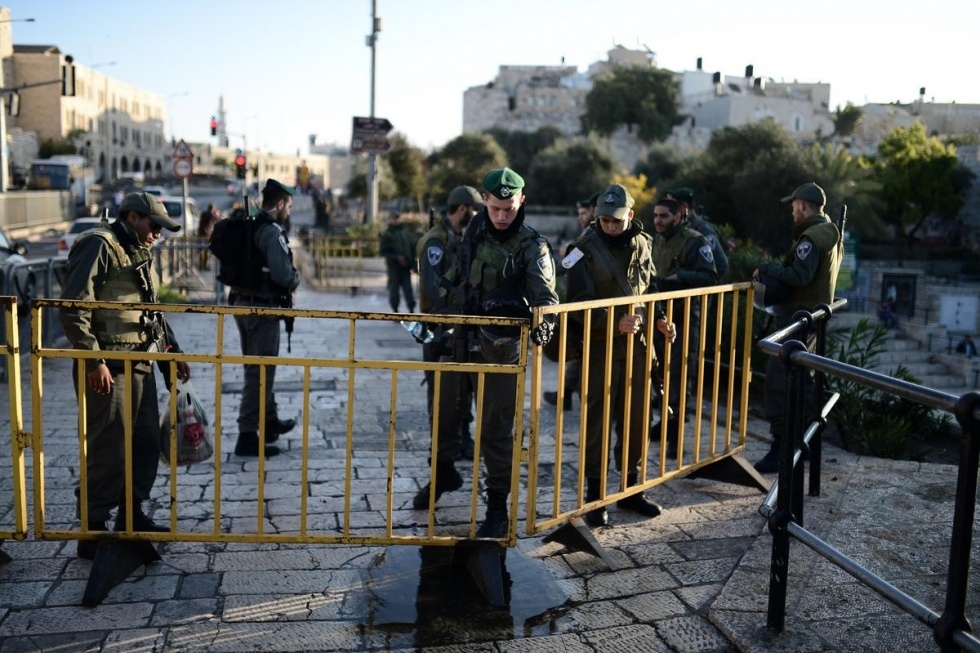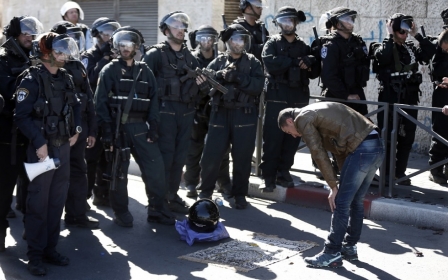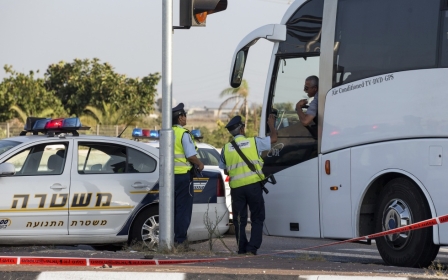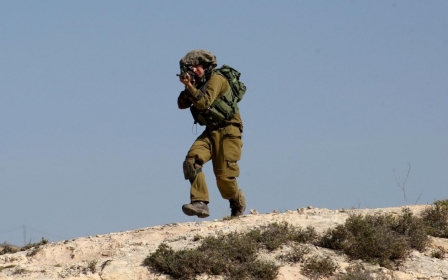Israel increases punitive measures against Palestinians

Israel has drawn condemnation from human rights groups over policies that human rights watchdogs have condemned as collective punishment.
An Israeli minister revoked on Wednesday the residency rights of the widow of a Palestinian who carried out a deadly attack on a Jerusalem synagogue on 18 November.
The move came after Israeli prime minister Benjamin Netanyahu announced he would seek broad powers to rescind the residency and welfare rights of any Palestinian resident of Israel or East Jerusalem if they, or their relatives, participated in unrest.
"I have ordered the cancellation of Nadia Abu Jamal's permit to stay in Israel," interior minister Gilad Erdan said in a statement.
"Anyone who is involved in terror must take into account that there are likely to be implications for their family members too."
The statement said the wife of Ghassan Abu Jamal had been granted East Jerusalem residency under a "family reunification" clause allowing residents of the Palestinian territories to stay with spouses who hold either Israeli citizenship or permanent residency.
Palestinians in East Jerusalem have residency rights but not citizenship.
Cousins Ghassan and Odai Abu Jamal, from the East Jerusalem neighbourhood of Jabel Mukaber, killed five people at a synagogue last week before being shot dead by police, in the city's bloodiest attack in six years.
Israel has introduced a series of measures against the families of Palestinians involved in attacks in Jerusalem, including the demolition of their homes.
Human Rights Watch deputy Middle East and North African director said in a statement on Saturday, “Punitive home demolitions are blatantly unlawful.”
“Israel should prosecute, convict, and punish criminals, not carry out vengeful destruction that harms entire families.”
Israeli rights group B'Tselem also slammed the decision to revoke Abu Jamal's residency permit.
"We object to this measure. It's abuse of a minister's authority and a form of collective punishment," B'Tselem spokeswoman Sarit Michaeli told the AFP news agency.
"She isn't accused of any harm, and the revoking of her residency status will actually mean she will be banished from her home and thrown out of the city she lives in," Michaeli said.
East Jerusalem has witnessed months of unrest, dating back to the July murder of a Palestinian teenager, an act of revenge for the killing of three Jewish settlers in the occupied West Bank.
The murder set off a week of riots in Shuafat, the teenager's neighbourhood, and protests have continued almost every night since.
More than 1,300 residents of East Jerusalem have been arrested since the summer, 40 percent of them children, according to advocacy group the Palestinian Prisoners Club.
Meanwhile, interior minister Gild Erdan on Wednesday also renewed a travel ban against Sheikh Raed Salah, the leader of the Islamic Movement inside Israel, for the third time in a row, the movement said.
"Israel's security arms issued an order for maintaining the travel ban against Sheikh Salah," the Islamic Movement inside Israel added on its website, noting that the ban would be in effect until 9 January.
Salah, a Palestinian who lives in northern Israel, is an outspoken opponent of Israel's settlement construction policies.
Some observers have said that the travel ban renewal against the man aims to tighten the noose around him against the background of his defence of Al-Aqsa Mosque.
Salah, meanwhile, was unfazed by the ban.
"My voice is the voice of every free man in the Arab world," Salah was quoted by the website of the movement as saying. "This voice cannot be silenced or broken because it is the voice of right against the Israeli occupation," he added.
This is the third time the travel ban against Salah is renewed. The ban was renewed for six months in June. It was initially issued for a month earlier.
In the West Bank,Israeli forces detained 15 Palestinians in raids in the West Bank and East Jerusalem on Thursday, a Palestinian NGO has said.
New MEE newsletter: Jerusalem Dispatch
Sign up to get the latest insights and analysis on Israel-Palestine, alongside Turkey Unpacked and other MEE newsletters
Middle East Eye delivers independent and unrivalled coverage and analysis of the Middle East, North Africa and beyond. To learn more about republishing this content and the associated fees, please fill out this form. More about MEE can be found here.




